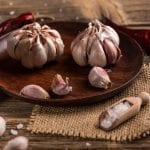When I mention beetroot, most people think of the awful pickeled stuff in the jar and say, “No thank you”
But this humble root vegetable with the most gorgeous colour is a wonderful healing food and delicious when prepared the right way: eaten either raw, grated into salads (if you buy organic there’s no need for peeling, just make sure to wear a rubber glove!), baked, boiled into a soup or roasted.

Beautiful, Delicious, and Healthful
No wonder I chose beetroot out of all the winter vegetables to write a feature on this month. Beetroot juice is renowned for being a great liver cleanser, which make it one of the most important part of all detox diets. It contains bio-available vitamin C and manganese needed for the production of endogenous antioxidant Superoxide-dismutase, and enhances the endogenous production of Glutathione, both needed for proper detoxification.

Powerful Detoxifier and Purifier
It is often advisable to use just a small amount of beetroot juice mixed with other vegetable juices so as not to push the body into detoxifying too quickly. Beetroot is also believed to regenerate the cells of the immune system, build and purify the blood, balance sex hormones and improve the circulation. Its betaine content make it a wonderful digestive aid as it increases stomach acid levels, thus helping digestion, improving reflux caused by too low acid levels, and prevent hiatus hernia. It can relieve some types of constipation and as most vegetables, it is perfect for alkalizing the system. Read on

Helps Heart Health
Beetroot contains antioxidants that can help reduce the oxidation of LDL cholesterol which could lead to damaged artery walls and ultimately heart attacks and strokes. Once again, its Betaine content responsible for recycling homocysteine, a dangerous byproduct of normal metabolic precesses that lead to cardiovascular diseases when elevated levels are not addressed. It lowers cholesterol and protects liver against fatty deposits. Anthocyanidins are the antioxidants found in beetroot that help in the synthesis and protection of collagen – the structural support of skin and every tissue in the body, but they are also potent anti-inflammatory agents and smooth muscle relaxants – further helping the cardiovascular system

Rich in Folate and Betacyanin
Beetroots are also one of the richest sources of folate. Folate is especially important during pregnancy and pre-conceptual care as it can reduce the risk of spina bifida in the unborn child. However it is not advisable to take lots of beetroot juice when pregnant or breast feeding, as its strong detoxifying effect may harm the fetus. Folate is also recommended to reduce the risk of heart disease as it helps reduce homocysteine in the blood. It’s needed for the health of fast re-producing cells, like those lining the intestines, making it excellent remedy for digestive disturbances. The deep red colour of beetroot comes from betacyanin. This has anti-carcinogenic properties, particularly against colon cancer.
Promotes Healthy Skin, Hair, and Bones
Beetroot is a good source of silica needed for the utilization of calcium in the body and for healthy skin, hair, nails and bones. Beetroot is also rich in Magnesium, Potassium and Boron needed for bone density. Its leaves are also one of the richest sources of Calcium, and they make a wonderful salad green, so don’t throw them out! Whatever you can’t use fresh, cook into a soup.



